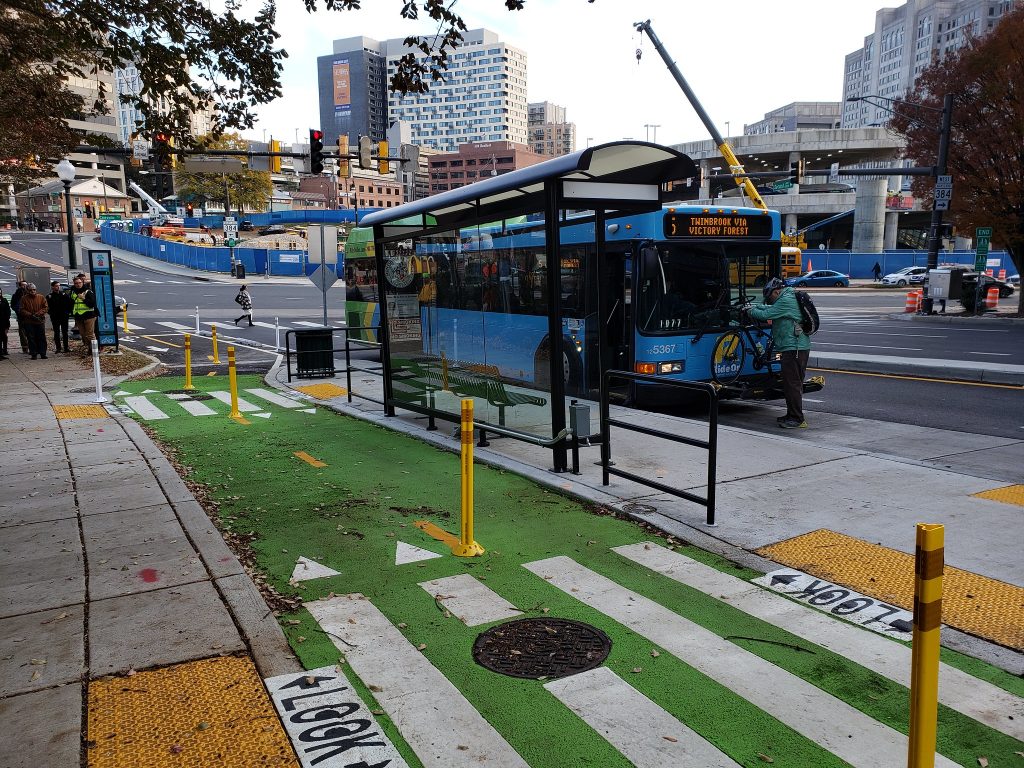
The Senate needs a new transportation bill—and over 120 elected officials and organizations agree

Current long-term transportation policy expires this September, giving Congress a rare opportunity to fundamentally rethink American transportation. That’s why the House passed a transformative bill last summer—but the Senate Environment and Public Works Committee passed a status quo bill that would just make our problems worse. Over 120 elected officials and organizations signed our letter urging the Senate to take a new course.

Last summer, the House of Representatives passed a long-term transportation bill completely unlike any we’ve seen before.
The bill—called the INVEST Act—required states to maintain their roadways before building new ones; use Complete Streets design standards, among other policies that make the safety of people walking and biking a priority; and measure how well their transportation investments connect people to jobs and services, and prioritize investments that improve those connections—regardless of mode.
These policy changes would start the work of focusing our transportation policy on outcomes, not dollars—building a transportation system that connects people to what they need affordably, safely, conveniently, equitably, and sustainably.
The Senate was a different story. The Environment and Public Works (EPW) Committee is responsible for writing the highway portion of the long-term transportation law, and the bill they passed in summer 2019 was, kindly, so-so:
- No requirement to maintain roads with the overwhelming amount of funding dedicated to highways;
- Nothing to curb the skyrocketing number of people killed while walking every year;
- The bill included a pilot program to measure access, but nothing to reorient the federal transportation program from mindlessly pursuing vehicle speed as a goal.
As we wrote then, we’re tired of the same old transportation bills that pump money into building highways at the expense of our crumbling roads and bridges, people’s access to essential jobs and services, and human life.
But there’s hope: The new chair of the Banking, Housing, and Urban Affairs Committee (the Senate committee responsible for the public transit portion of the long-term transportation bill) has said that he wants his committee to take a much bigger role in passing this legislation. (Historically, EPW has taken the lead, leaving transit policy and funding in the dust.) In addition, the new EPW chair has requested feedback this month from members on surface transportation priorities.
To capitalize on this, 124 elected officials and organizations from 35 states signed our letter urging the Senate to pick a new path—like the INVEST Act—to the long-term transportation bill. It’s time for the Senate to pass a bill that fundamentally updates the 70 year old federal transportation program to prioritize maintenance, design for safety over speed, and connect people to jobs and services—and so many agree.
To achieve this vision, the EPW and Banking committees must work together—a critical piece of our message to the Senate. Our letter reads:
“Climate change, racial and economic equity, safety, and maintenance are interrelated transportation challenges—just like highways, public transit, biking, walking, and passenger rail are interrelated. We can no longer consider these issues in legislative and policy silos; coordination among your committees is essential to delivering the transportation system Americans deserve.
“As an example of the committee coordination needed, we support significant new investment in public transit and passenger rail—including operating support for public transit—to provide more people with safe, reliable, and convenient service. At the same time, every trip begins and ends as a pedestrian and we also support investments in safe streets and more connected communities that are necessary to leverage investments in transit and rail. “
As Senators hit the drafting board this spring, we urge them to take our recommendations to heart. It’s long past time for visionary transportation legislation that meets the moment.
Read our full letter here, and check out our blogs on the Senate and House bills:



